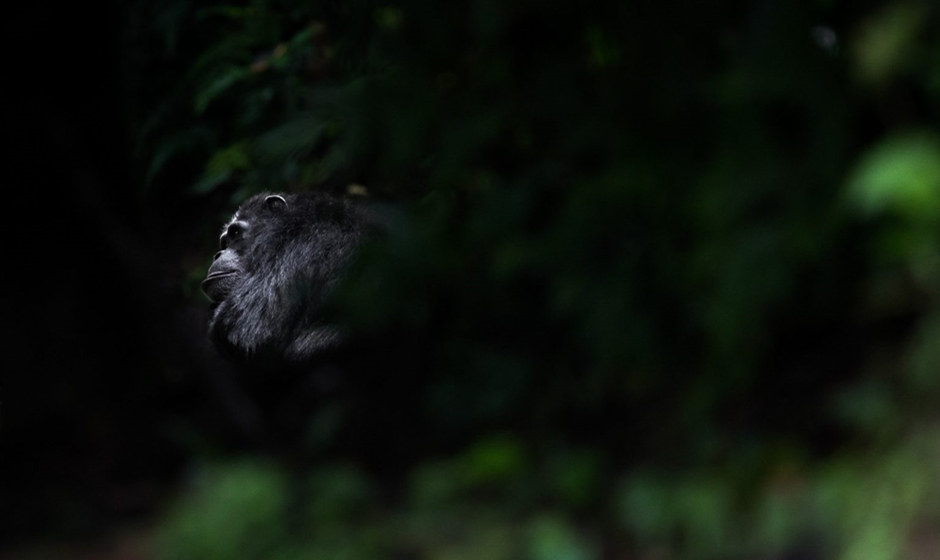Nyungwe Forest National Park, located in Rwanda, is home to a variety of wildlife, including a population of chimpanzees. Chimpanzees are one of the most intelligent primate species and share about 98% of their DNA with humans. They are known for their complex social behaviors, tool use, and problem-solving abilities.
In Nyungwe, chimpanzees live in the dense montane rainforest, which provides them with a suitable habitat for their survival. The park is estimated to have a population of around 500 chimpanzees, making it an important conservation area for these endangered primates. It’s important to note that while chimpanzee sightings are common in Nyungwe, they are still wild animals, and encounters cannot be guaranteed. The park authorities and tour operators enforce strict guidelines to ensure the well-being and protection of both the chimpanzees and the visitors.
Chimpanzees are man’s closest relatives. They share many of our traits and are arguably the most intelligent Apes after us humans. They are known to live up to 60 years in captivity. In Rwanda, chimps can be found in three main places – Nyungwe National Park (Nyungwe and Cyamudongo forests) and Gishwati Mukura national park. Nyungwe National Park has the highest population of chimps (over 400 individuals) and other primates – 13 species in total. Two chimpanzee communities have been partially habituated in Nyungwe National Park.
Most of them live in Nyungwe forest (60 individuals) while the rest are found in Cyamudongo Forest (30 individuals). Other species include blue monkeys, Mona monkeys, silver monkeys, owl-faced monkeys, the Dent’s monkey, black faced ververt monkeys, L’Hoest monkeys, baboons, grey-cheeked Mangabeys, Rwenzori colobus, black and white colobus monkeys.
Eastern Chimpanzee
 The most known animal in Nyungwe Forest National Park is the chimpanzee. The type of chimpanzee found in Nyungwe Forest is the eastern chimpanzee. The eastern chimpanzee is a subspecies of chimpanzee found in Rwanda, Democratic Republic of Congo, Tanzania, and Uganda. There is also a small population left in Burundi. In Rwanda it can be found in Nyungwe Forest and Gishwati Forest. The eastern chimpanzee is smaller than other recognized subspecies of chimpanzees, male and female are also much more similar in size.
The most known animal in Nyungwe Forest National Park is the chimpanzee. The type of chimpanzee found in Nyungwe Forest is the eastern chimpanzee. The eastern chimpanzee is a subspecies of chimpanzee found in Rwanda, Democratic Republic of Congo, Tanzania, and Uganda. There is also a small population left in Burundi. In Rwanda it can be found in Nyungwe Forest and Gishwati Forest. The eastern chimpanzee is smaller than other recognized subspecies of chimpanzees, male and female are also much more similar in size.
Chimpanzees are very strong and robust primates and a close look at them easily give away that they are our closest relatives. Chimpanzees live in large family groups in dense tropical forests where they spend most of their times foraging for edible fruits and shoots. Unlike monkeys, chimpanzees are too heavy to swing themselves entirely through the tree canopy and spend a considerable amount of time on the ground. They are good climbers and will easily climb trees in search of fruits, or to evade danger. Chimpanzees also sleep in beds or nests that they prepare from leaves and branches high up in a suitable tree.
Chimpanzee tracking in Nyungwe Forest is one of the most popular activities in the park. This activity needs to be pre-booked as the departure is early in the morning. It can be organized through the Visitor’s Center in Uwinka, the Gisakura Office or through a private tour operator.
The chimpanzees population in Nyungwe Forest numbers more than 500 individuals, but can still be quite elusive and hard to find. Some of the chimpanzee groups in Nyungwe Forest National Park are habituated to humans. These groups are used to seeing humans in the forest and are approachable when visiting. They are still wild animals, but tolerate that visitors approach them without taking fright. Before chimpanzee tracking, rangers from the park will locate a group of chimpanzees to visit to know the approximate location.
Chimpanzee tracking in Nyungwe Forest National Park can be done from Uwinka where there is a habituated community of about 60 individuals. The tracking starts at 5:30 am. Chimpanzee tracking can also be done at Cyamudongo Forest, which is a small pocket of Forest Located south west of the main forest. There are about about 30 individuals in this group and it is aout 1h 30mins , drive with a 4wd car from Gisakura Guest House. The tracking starts at 5am from the Gisakura office. All registration and payment for chimp trekking must be done the day before the activity at latest. There is an age restriction at 15 years for all chimpanzee tracking. Children under the age of 15 are not allowed to join the chimpanzee tracking.
